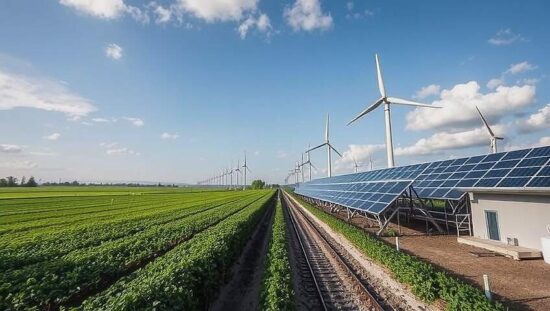A new study conducted on behalf of the Bertelsmann Foundation has revealed that the transition to green technologies is having a significant impact on different regions in Germany, with varying outcomes. The study, reported by the “Spiegel” magazine, highlights the urgent need for the federal government to revise regional funding criteria in order to address the challenges posed by this transformation.
The study suggests that the transition is particularly threatening to industrial jobs in regions that are currently experiencing economic growth, such as Wolfsburg, the headquarters of Volkswagen, southern Baden-Württemberg and the Hochsauerlandkreis. The reason for this is that many of the companies in these regions are responsible for high greenhouse gas emissions. To mitigate the impact of this technological shift, significant investments are required.
However, the most important state-funded program, the Regional Economic Structural Community (GRW), only designates regions as funding recipients if they have high levels of unemployment or low Gross Domestic Product per employee compared to the national average. Despite the introduction of CO2 emission reduction as a co-equal goal in 2022, it has not played a significant role in reality.
According to the study, by 2027, the regions with the highest investment cost subsidies will be almost exclusively located in Eastern Germany. The majority of the regions that are particularly affected by the transformation will not receive any funding. As a result, the study recommends the implementation of a “proactive industrial policy” that actively supports regions experiencing significant change. The study suggests that the expected regional transformation stress should be incorporated as a criterion in the distribution key, allowing for targeted allocation of the new special fund to particularly affected regions.
The regional policy also has an impact on the public’s acceptance of the decarbonization process. “If the challenges of the transformation are concentrated in specific regions, it not only undermines public support for climate policies but also tends to increase political polarization at the polls” said Daniel Posch, an economist at Bertelsmann. A study conducted in 2024 found that the Alternative for Germany (AfD) party experienced significant gains in regional elections in areas with high transformation stress. This highlights the need for effective regional policies to address the challenges posed by the transition to green technologies.





